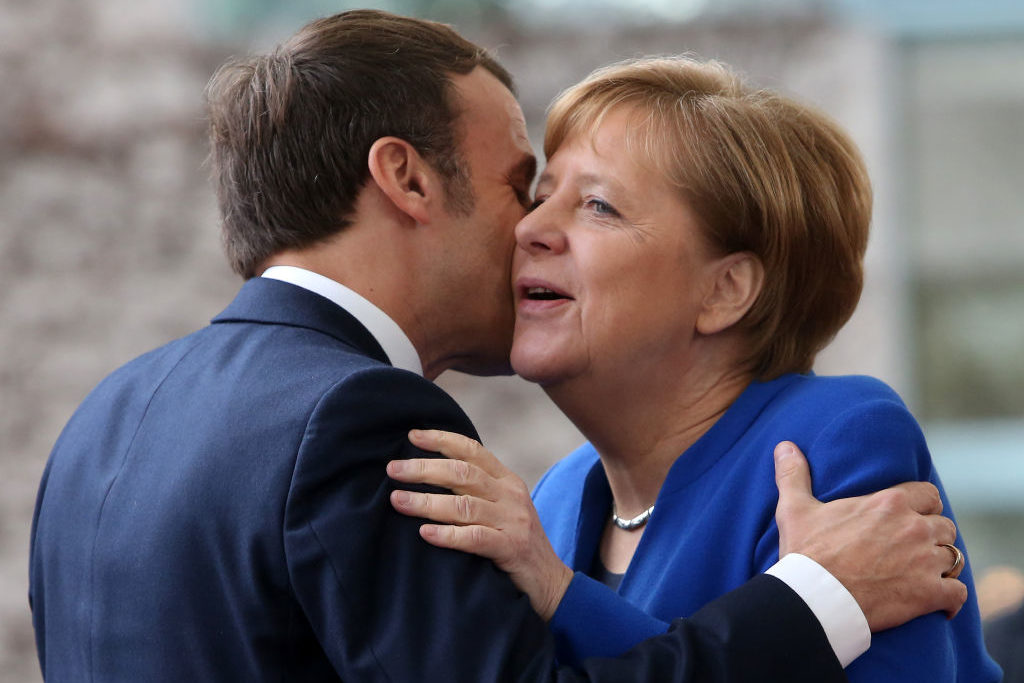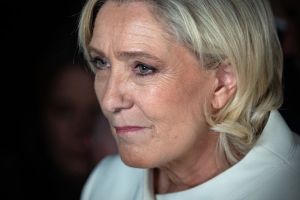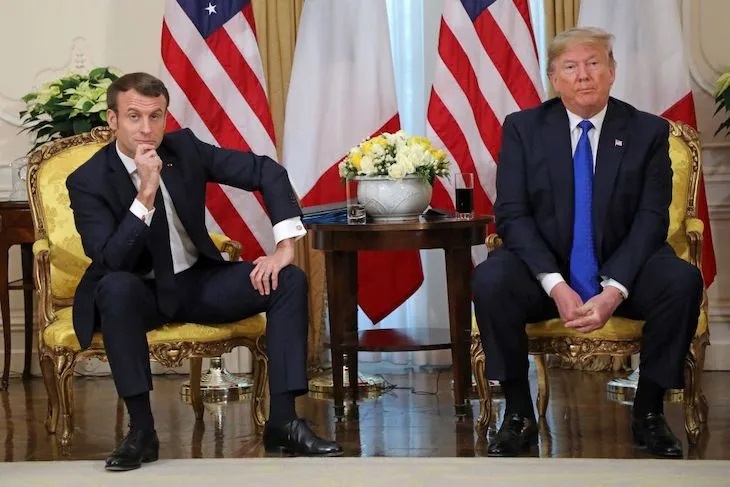In his broadcast to the nation 11 days ago, President Macron tub-thumped his war campaign on coronavirus. Six times he repeated the word ‘war’. Yesterday, he visited the front: Mulhouse in Alsace, on the Franco-German border, where France’s largest virus cluster is overwhelming the region’s hospitals. Live TV saw him, masked up, in an army field hospital, surrounded by soldiers in combat gear. From there he spoke again to the nation. France, he intoned, was at war in this region, a region scarred by past wars. By remaining united France would defeat the coronavirus enemy. And he launched military ‘Operation Résilience’ to take the combat further.
Macron’s advisers have allegedly been briefing that he is the new Clemenceau. In 1917, when the war was going badly for France and the allies, Georges Clemenceau was made prime minister to re-invigorate the war effort. It was Clemenceau who, when asked in parliament what his policy was, retorted : ‘Domestic policy, I make war; foreign policy, I still make war’.
That coronavirus is a crisis there is no doubt. Whether it is worthy of being deemed a full-scale war is another matter. To be fair to Macron, he is not the only politician in France, or abroad, to use the war metaphor. But Macron, whose passion at high school was drama (which is how he met his wife) and which he relishes combining with history, is fully exploiting the theatricality of the crisis.
But there is a terrible irony lurking in this mise en scene of Clemenceau’s victorious war-making. Clemenceau’s eventual victory in the Great War would rightly see him celebrated nationally and beyond as Père-la-Victoire. But Macron’s advisers forget that Clemenceau’s other war-time mantra was, ‘Germany will pay!’ Germany would be forced to pay the bill for the war. Just as Clemenceau threw all of France’s resources into the war effort, so Macron and his ministers have repeated the Mario Draghi quip: ‘Whatever it takes.’
The French lockdown, which is now expected to last until the beginning of May, is an economic bombshell. French debt, before COVID-19, was running at over 100 percent GDP and France was already in breach of the EU’s three percent budget deficit rules. Today the French statistical agency (INSEE) states that French economic output is down by 35 percent and that the crisis this year will knock three points off French GDP if lockdown lasts a month, six percent should it last two months. How will she pay for this? It seems Germany will be asked to pay.
Yesterday, nine European leaders, with France on the front-line, called for the debt from the coronavirus epidemic to be mutualised across the eurozone. As I wrote in The Spectator on March 22, the coronavirus debt mountain will make or break the EU. We are fast approaching a re-run of the 2010/12 euro crisis that came in the wake of the 2008 Great Financial Crash.
On Tuesday, EU finance ministers failed to agree on common measures to refloat their economies in the wake of COVID-19. Lined up on one side was France, Italy, Spain, Portugal, Ireland, Luxembourg, Slovenia, Belgium and Greece, who called for the creation of a ‘common debt instrument’, nicknamed by the Italian prime minister, somewhat morbidly: ‘Corona bonds’. In technical terms, according to the EU, to be effective this bond should be of a size and maturity sufficient not to risk refinancing in the future. In layman’s terms, a very large sum and for the long term.
In the 2010/12 euro crisis, the principal beneficiaries were the so-called P.I.G.S. (Portugal, Italy, Greece and Spain). Sometimes referred to as the Southern states, their number has swelled since. The Spanish finance minister referred to the ‘euro-bond’ project as a ‘Marshall Plan’. But who will take on the financial role played by the Americans? The answer seems to be Germany.
As in the ‘euro crisis’ financing new euro debt will fall on those economical states from the so-called north of Europe, the largest of whom is Germany. Unsurprisingly at that meeting on Tuesday opposition to the ‘Corona bond’ was led by Germany and Holland. They insisted that the European Central Bank’s recent liquidity measures should be sufficient when supplemented by those of individual member states.
That is where things stand. Today EU finance ministers will make another attempt to reach a compromise by video-conference, COVID-19 oblige. Given the epidemic’s devastating impact on Italy, Spain and France, Germany and Holland will doubtless act diplomatically and probably seek a delay.
But without the weight and prestige of the northern states corona bonds will not go ahead. In the end, if another euro crisis is to be avoided, Germany will have to pay. President Macron’s advisers would do best to forget the analogies with Clemenceau given that unfortunate historical context.
This article was originally published onThe Spectator’s UK website.

























